Gender at the Centre Initiative (GCI)
As the technical lead of the Gender at the Centre Initiative IIEP-UNESCO Dakar works to promote gender equality in education systems in Africa. Learn more about our activities in favour of gender-sensitive educational planning and management.
Putting gender equality at the core of education
Schooling, apprenticeships, counselling... despite the progress observed over the last 25 years, girls' education faces many cumulative obstacles. The corresponding issues relating to the education of boys are no less complex. In education systems, these gender inequalities concern pupils, but also teaching and administrative staff.
Targeting eight countries in sub-Saharan Africa, the Gender at the Centre Initiative (GCI) was launched in 2019 as part of the G7 Summit. The IIEP Africa Office provides technical leadership to this international consortium aimed at building the capabilities of education system stakeholders and developing resources for gender equality with and through education.


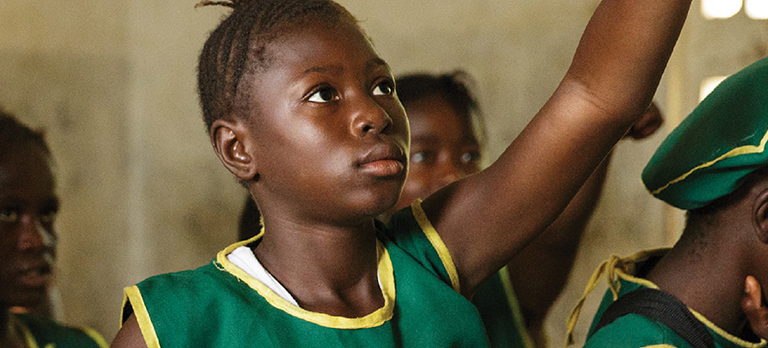
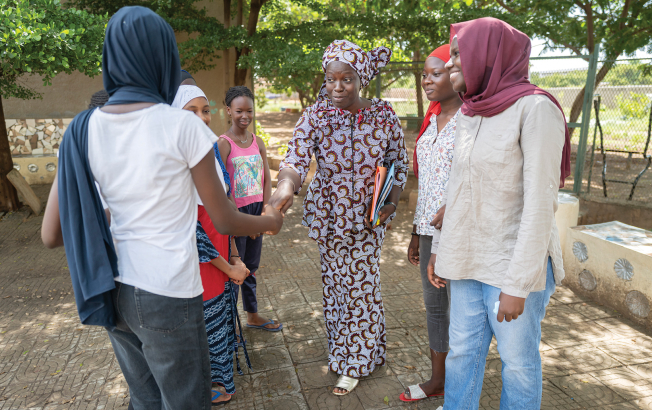
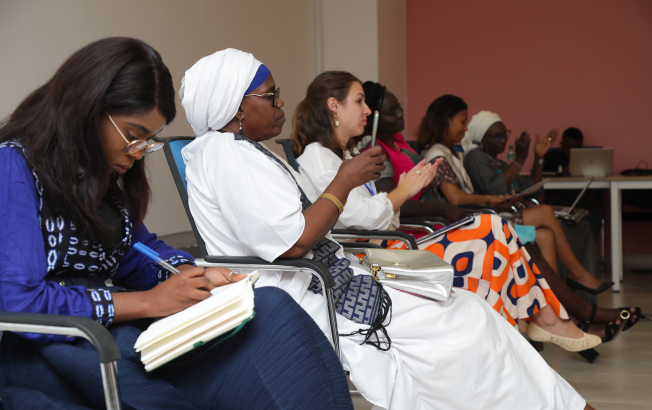
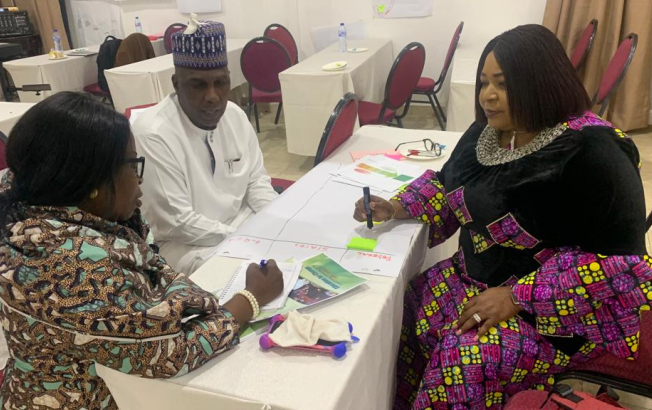
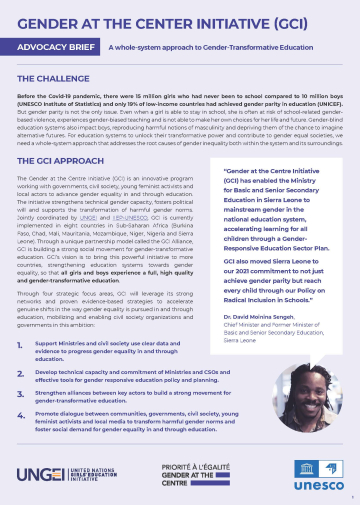
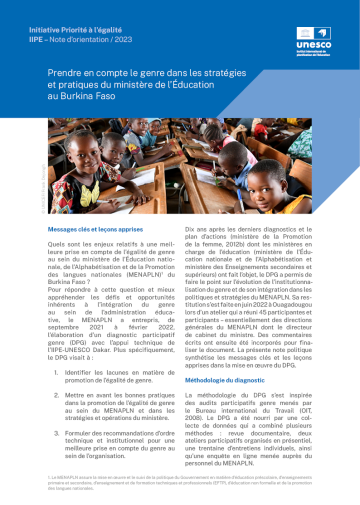
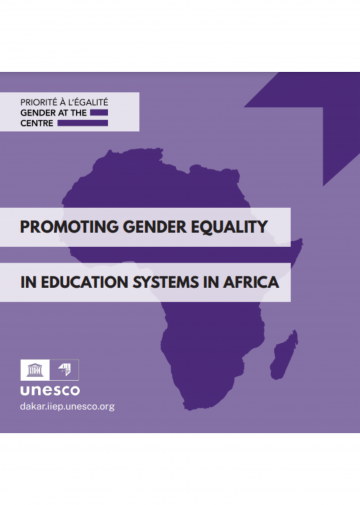
 Fabricia Devignes
Fabricia Devignes